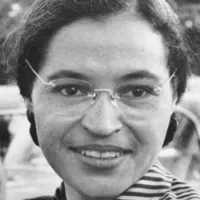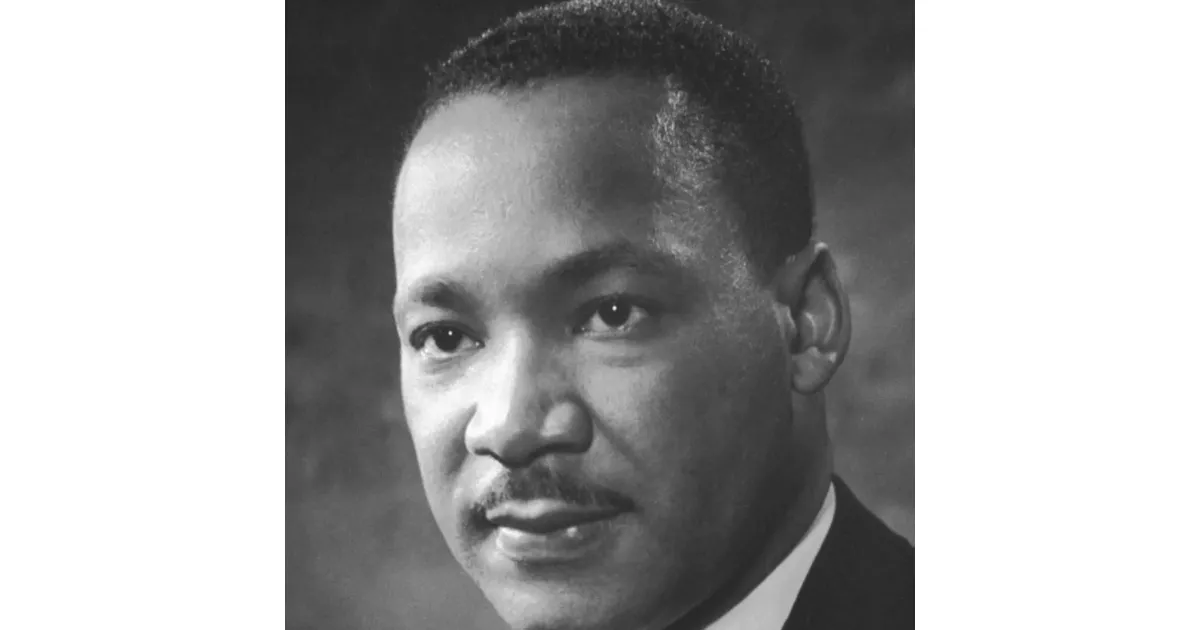Life is full of challenges, and Martin Luther King Jr. faced many. Discover key struggles and how they were overcome.
Martin Luther King Jr. was a pivotal leader in the American civil rights movement from 1955 until his assassination in 1968. As a Baptist minister and political philosopher, he championed civil rights for people of color through nonviolent resistance and civil disobedience. His activism targeted Jim Crow laws and other discriminatory practices, aiming to achieve equality and justice for all Americans. King's commitment to nonviolence and his powerful rhetoric made him an iconic figure in the fight against racial segregation and discrimination.
September 1935: Segregated Schooling Begins
In September 1935, at the age of six, Martin King Jr. began attending a segregated school for black children, marking the start of his experience with racial discrimination in education.
April 13, 1944: King's First Public Speech
On April 13, 1944, during his junior year, King delivered his first public speech in an oratorical contest and won. On the bus ride home, he experienced racial discrimination when he and his teacher were forced to stand for white passengers.
March 1955: Claudette Colvin Refuses to Give Up Bus Seat
In March 1955, Claudette Colvin, a fifteen-year-old black schoolgirl in Montgomery, refused to give up her bus seat to a white man, violating Jim Crow laws.
December 1, 1955: Rosa Parks' Arrest and Montgomery Bus Boycott
On December 1, 1955, Rosa Parks was arrested for refusing to give up her seat on a city bus, leading to the Montgomery bus boycott, which was urged and planned by Edgar Nixon and led by Martin Luther King Jr.
1957: FBI Tracking of King
In 1957, J. Edgar Hoover directed the FBI to track Martin Luther King Jr., due to his suspicion of potential communist influence in social movements.
September 20, 1958: Stabbing in Blumstein's Department Store
On September 20, 1958, while signing copies of his book 'Stride Toward Freedom' in Blumstein's department store in Harlem, Martin Luther King Jr. was stabbed in the chest with a letter opener by Izola Curry, a mentally ill black woman. He underwent emergency surgery and remained hospitalized for several weeks.
March 1960: Atlanta Student Movement Sit-ins
From March 1960 onwards, the Atlanta Student Movement organized the Atlanta sit-ins to desegregate businesses and public spaces.
May 4, 1960: Arrest for Driving Without a License
On May 4, 1960, Martin Luther King Jr. was cited for 'driving without a license' in Atlanta, after being stopped by police while driving writer Lillian Smith to Emory University. King's Alabama license was still valid, and Georgia law did not mandate any time limit for issuing a local license. He later paid a fine and was unaware that his lawyer agreed to a plea deal that included probation.
December 15, 1961: King's Involvement in the Albany Movement and Arrest
On December 15, 1961, Martin Luther King Jr. first visited Albany, Georgia, and became involved in the Albany Movement. He was swept up in a mass arrest of peaceful demonstrators and declined bail until the city made concessions.
July 1962: King Jailed in Albany and Released
In July 1962, Martin Luther King Jr. returned to Albany and chose jail over paying a fine. However, after three days, Police Chief Laurie Pritchett discreetly arranged for King's fine to be paid, leading to his release.
April 1963: Birmingham Campaign Begins
In April 1963, the SCLC began a campaign against racial segregation and economic injustice in Birmingham, Alabama, using nonviolent but intentionally confrontational tactics.
December 1963: FBI's Intensive Campaign to 'Neutralize' King
From December 1963 until his death in 1968, Martin Luther King Jr. was the target of an intensive campaign by the Federal Bureau of Investigation to 'neutralize' him as an effective civil rights leader.
1963: FBI Concerns Over Stanley Levison's Influence
Due to the relationship between Martin Luther King Jr. and Stanley Levison, the FBI feared that Levison was working as an "agent of influence" over King, despite its own reports in 1963 indicating that Levison had left the Communist Party.
1963: FBI Wiretapping Authorization
In the fall of 1963, the FBI received authorization from Attorney General Robert F. Kennedy to proceed with wiretapping of Martin Luther King Jr.'s phone lines, purportedly due to his association with Stanley Levison. The Bureau informed President John F. Kennedy.
1963: FBI's COINTELPRO Investigation
Starting in 1963, J. Edgar Hoover and the FBI began targeting King with COINTELPRO, investigating him for alleged communist ties and spying on his personal life.
March 1964: Joining Forces in St. Augustine, Florida
In March 1964, Martin Luther King Jr. and the SCLC joined forces with Robert Hayling's movement in St. Augustine, Florida, despite its advocacy for armed self-defense. They brought white Northern activists to St. Augustine to protest segregation.
November 4, 1964: Washington Post Article on Invitation to Soviet Union
A Washington Post article dated November 4, 1964, claimed that Martin Luther King Jr. was invited to the Soviet Union, leading the CIA to investigate possible links between King and Communism. Ralph Abernathy, as spokesman for King, refused to comment on the source of the invitation.
November 1964: Support for Scripto Factory Strike
In November 1964, Martin Luther King Jr. supported a labor strike by workers at the Scripto factory in Atlanta, leading the SCLC to organize a nationwide boycott of Scripto products to elevate the labor dispute. The boycott ended on December 24, 1964.
1964: Opposition to Barry Goldwater's Presidential Candidacy
In 1964, Martin Luther King Jr. urged his supporters to vote against Republican Senator Barry Goldwater for president, believing that his election would be a tragedy for the nation and the world.
1964: Questionable FBI Recording from the Willard Hotel
In 1964, an audio recording from the Willard Hotel was made by the FBI, and others, including Mrs. King, have said they did not hear Martin's voice on it. The added summary was four layers removed from the actual recording. This supposedly new information comes from an anonymous source in a single paragraph in an FBI report.
January 2, 1965: Defying Injunction in Selma
On January 2, 1965, Martin Luther King Jr. defied an injunction against gatherings by speaking at Brown Chapel in Selma, Alabama, temporarily halting civil rights activity until King defied it.
March 7, 1965: Bloody Sunday in Selma
On March 7, 1965, the first attempt to march from Selma to Montgomery was aborted due to mob and police violence against the demonstrators. This day became known as Bloody Sunday, which was a major turning point in the effort to gain public support for the civil rights movement.
1965: Denial of Communist Connections in Playboy Interview
In a 1965 Playboy interview, Martin Luther King Jr. adamantly denied having any connections to communism, stating that "there are as many Communists in this freedom movement as there are Eskimos in Florida." Hoover replied by calling King "the most notorious liar in the country".
August 5, 1966: March through Marquette Park
On August 5, 1966, a march through Marquette Park was met by thrown bottles and screaming throngs. Martin Luther King Jr. negotiated an agreement with Mayor Richard J. Daley to cancel a march to avoid violence. King was hit by a brick during one march.
1967: SCLC Listed as a Black Nationalist Hate Group
In 1967, J. Edgar Hoover listed the SCLC as a black nationalist hate group, with instructions to exploit organizational and personal conflicts to disrupt, ridicule, or discredit the group.
1968: FBI's Intensive Campaign to 'Neutralize' King
From December 1963 until his death in 1968, Martin Luther King Jr. was the target of an intensive campaign by the Federal Bureau of Investigation to 'neutralize' him as an effective civil rights leader.
1968: Memphis Police Surveillance and King's Assassination
In the spring of 1968, the Memphis Police Department spied on Martin Luther King Jr. as he supported striking sanitation workers. Police officers were stationed in a fire station across from the Lorraine Motel, next to James Earl Ray's boarding house, to keep King under surveillance. The antagonism between King and the FBI, the lack of an all points bulletin to find the killer, and the police presence nearby led to speculation that the FBI was involved in the assassination.
May 2019: Emergence of FBI File Alleging King's Involvement in Sexual Assault
In May 2019, an FBI file emerged alleging that Martin Luther King Jr. "looked on, laughed and offered advice" as one of his friends raped a woman. Historians have dismissed this evidence as highly unreliable.
Mentioned in this timeline

Donald John Trump is an American politician media personality and...

John F Kennedy JFK was the th U S President...

Jesse Jackson is an American civil rights activist politician and...

Rosa Parks an American civil rights activist is renowned for...
The Union of Soviet Socialist Republics USSR existed from to...
India officially the Republic of India is a South Asian...
Trending

54 minutes ago Selena Gomez's Spiced-Plum Manicure and TikTok Clone Theory Spark Buzz

55 minutes ago Kit Harington and Sophie Turner Gag After On-Screen Kiss in New Movie

55 minutes ago Trump administration updates, Iran nuclear efforts, and White House controversies unfold.

55 minutes ago Dario Amodei Highlights India's Central Role in Shaping AI's Future at AI Summit.

2 hours ago Yoon Suk Yeol, South Korean ex-president, receives life sentence for insurrection and martial law.

4 hours ago Maya Hawke and Christian Lee Hutson celebrated wedding with Stranger Things cast present.
Popular

Jesse Jackson is an American civil rights activist politician and...
Randall Adam Fine is an American politician a Republican who...

Pam Bondi is an American attorney lobbyist and politician currently...

Barack Obama the th U S President - was the...

Martin Luther King Jr was a pivotal leader in the...

Ken Paxton is an American politician and lawyer serving as...

